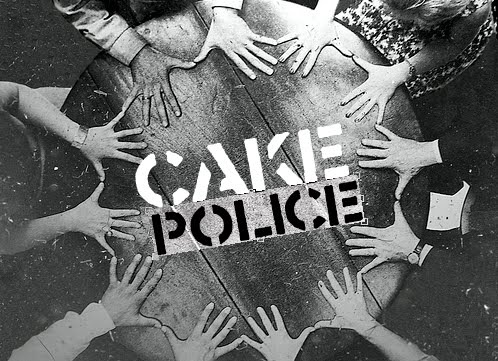Friday, April 30, 2010
We're going to keep posting this until the entire internet gives us money
<3 <3 <3 <3 <3 <3 <3 <3
PLZ REPOST THIS
Wednesday, April 28, 2010
For All You Curb Fans
Surprised this wasn't posted already!
07-17-18 Chicago, IL - Bottom Lounge
07-23 Washington, DC - The Black Cat
07-24 Philadelphia, PA - Starlight Ballroom
07-27 San Francisco, CA - Bimbo's 365 Club
07-28 Los Angeles, CA - Echoplex
Tuesday, April 27, 2010
Monday, April 26, 2010
David Cross is a Pit-Boss
"Hi, I was a somewhat surprised that Pitchforkmedia.com would ask me to participate in this. Here's why:
"'The devastating paradox of David Cross' pre-recorded comedy: Is it funny that everything Cross says is nauseatingly smug, yelped out in smarmy, supercilious prose? Or is David Cross just a giant fucking asshole?"
"'That Cross is such an immensely unlikable live performer-- condescending, defensive, arrogant, patronizing-- is both his greatest asset and his most crippling flaw."
"And while the above review of my second cd It's Not Funny is certainly more thoughtful than, "David Cross? Yeah, he's funny" or "He sucks", it's still a bit shitty. "...immensely unlikable"? The paradox is "devastating"? How is it devastating?
"And that's just one reviewer, Amanda Petrusich.* There's another one, William Bowers, who claims to: "...having developed a strange, extra-textual concern for David Cross. Likeminded futon-psychoanalysts fret over his fluctuating weight, his fitfulness, and despondence..."
"Fretting over my weight? Oh well. But regardless of their opinion of me and/or my act, they've asked me for my Top Ten List®, So here is my contribution to the Top Ten List® For Pitchforkmedia.com
"Top Ten CD's That I Just Made Up (and accompanying made-up review excerpts) to listen to while skimming through some of the overwrought reviews on Pitchforkmedia.com
"1) While reading over Pitchforkmedia.com's review for the Arcade Fire, here's a brief excerpt: "Our self-imposed solitude renders us politically and spiritually inert, but rather than take steps to heal our emotional and existential wounds, we have chosen to revel in them. We consume the affected martyrdom of our purported idols and spit it back in mocking defiance." May I suggest listening to Until it Happens/You Let it Happen, by Maximum Minimum. The fourth album (not counting the re-release of the first three 7-inches on HugTown Records) reaffirms the band's status as the godfathers of the Taos, N.M. "crying scene." Like a gilded phoenix rising from the toxic ashes of the death of mercurial lead guitarist, Peter Chernin, Maximum Minimum snarls back like a taunted tiger on steroids (also on acid). RATING: 8.2
"2) While reading the review of Daft Punk's Human After All: "Ideally, the physics of record reviewing are as elegant as actual physics, with each piece speaking to the essence of its subject as deliberately and as appropriately as a real-world force reacting to an action," is a real albeit brief excerpt. May I suggest listening toElegant Nuisance by ButterFat 100. With this, their second album since signing with Holive Records, ButterFat 100 return to their psychobilly/emo core roots. Let its volcanic rapture overwhelm you like a 19th century hand-woven blanket made of human hair might have done back in the days when they enjoyed such things. RATING: 5.5"
"6) When you're enjoying the review of the M.I.A. / Diplo album, Piracy Funds Terrorism, Vol. 1. Here's the beginning of that one: "Santa Claus, the Virgin Mary, and Terrence 'Turkeytime' Terrence just got the shaft this holiday season. Why bother with presents? 2005's Tickle Me Elmo was supposed to be a chicken-legged Sri Lankan with so much sex in her self-spun neons you might as well get wasted off penicillin with Willie Nelson at a secret Rex the Dog show." Huh? Check out University of Blunts' Dirty Dirty Dirty Dirty Dirty Dirty. It's like a 505 Groovebox as designed by someone who reads only Braille. Actually, to clarify, only if that same designer got caught in a transformer with Brindle Fly and decided to travel 50 years into the future and bring back what might have sounded retro thirty years from now if the future takes it's more than lugubrious, predictable course. RATING: 4.001"
"8) Trying to make sense of the review of Autechre, Untitled? It's a one-act play that starts with:
(Sitting in the dormitory room just after class on Thursday, Achilles changes into his gym clothes as his roommate Tortoise bursts through their door in a fit of happiness.)
Tortoise: Achilles, have you seen this?
Achilles: What?
Tortoise: Do you see? Yes? I'm referring to the object, though small in size, quite interesting in stature, I am holding in front of you now.
Achilles: It's a CD.
And ends with:
Achilles: And my point is, if it's driven by form, it's a pretty messy, lazy form-- certainly no more structurally sound than any other software wank music. On top of that, if I'm supposed to "feel" this, to pick up on some obscure metaphysical in-joke, I'm not-- isn't it the job of a good artist to make that shit clear? Either way, it fails for me. Autechre decided to go their own way, fine, you know, just don't expect me to call them "geniuses."
Tortoise: [Sigh] Alright, Achilles, I can see we're going to have to agree to disagree. I'm sorry to have wasted your time.
Achilles: Oh don't worry, dude, just wear headphones when you play that stuff.
(With all apologies to Douglas Hofstadter and Gödel, Escher, Bach: an Eternal Golden Braid, which I'd send you if I had an extra copy.)
Why not give a listen to: Pillow Logics new disc, Treason to Live, a wiry concept album that gives new meaning to the phrase, "Now, I've seen everything!" Ostensibly about a young girl who loses her shoes in a cockfight she mistakenly attends during Thanksgiving 1959, it's really about the universal themes of loss, angst, candy and damp clothing. Taking its cue from the early commercial work of Deloite and Hughey and filtering it through the "I cut myself shaving" piousness of Throm Tillson, Pillow Logic re-works early sock hop chop flop and allows people like me to enjoy enjoying it. RATING: Two T-Shirts and a cup of jizz."
Full thing here
Sunday, April 25, 2010
Friday, April 23, 2010
BROCIALISM

“Between your village and mine, there is a dot and a line. The line says, there is no entrance, and on the dot, this road is closed…because these things do not exist, rather, they have been drawn so that your hunger and mine remain always separated.”
--Anonymous, Latin American folk song.
Wednesday, April 21, 2010
Tuesday, April 20, 2010
you ever listened to leonard cohen..... ON WEED?

You took me to your family
You warned me well before
that your father is a fascist
and your mother is a whore
I was kind of disappointed
I was bored to tell the truth:
your folks they’re just Good Germans
but you, you’re Hitler Youth
So I’m going to live in China
where you get a better deal
where your killer is a poet
and your comrade is a girl
-Leonard Cohen, 1973

Try never to repeat yourself - not in the icon, not on the
canvas, not in the word;
if something in its act recalls an ancient deed,
then, the voice of the new birth tells me:
Erase, be quiet, stifle the fire if fire it be,
so that the corset of your thoughts may be lighter
and not rust,
so that you may hear the breath of a new day in the desert.
Cleanse your hearing, erase the bygone days, only thus
will you be more sensitive and more white,
for like a dark stain these days sagely
lie upon your vestments, and in the breath of the wave
you will find the furrow of the new.
Your thought will find the contours and stamp them with the seal
of your advance.
Thursday, April 15, 2010
Cool Pics of a Catastrophe
Wednesday, April 14, 2010
Dave Eggers on Vonnegut
FICTION: Player Piano (1952), The Sirens of Titan (1959), Cat's Cradle (1963), God Bless You, Mr. Rosewater; or, Pearls Before Swine (1965), Mother Night (1966), Welcome to the Monkey House (stories, 1968), *Slaughterhouse Five; or the Children's Crusade: A Dance with Death (1969), Breakfast of Champions; or, Goodbye Blue Monday (1973), Slapstick, or Lonesome No More (1976), Jailbird (1979), Deadeye Dick (1982), GalapC!gos (1985), Bluebeard (1987), Hocus Pocus (1990), Timequake (1997), Bagombo Snuff Box (stories, 1999)
Kurt Vonnegut is one of the few writers in this guide that I can be sure that everyone has already read (unless "everyone" includes people who cannot read, or do not read, or are very young, or speak a language into which his work as not been translated). So. Vonnegut is a science fiction aficionado, WWII vet, lover of women, pitier of the poor, cranky luddite, fun-loving doomsayer, sometime postmodernist. His books -- very personal novels disguised as allegories disguised as science fiction -- nearly always take the entire world (or more) as their canvas. Usually there is a world war, or some catastrophic event, or often genocide, or a scientific or political innovation that threatens to, or has succeeded in, destroying all that we hold dear.
Because of this, Vonnegut could be dismissed as a cranky pessimist. Because his prose is frank and uncomplicated and often very funny, he could be passed off as a "humorist." Gore Vidal once called him "America's worst writer." But despite Vidal (did you know he's related to Al Gore? And the Kennedys?) and other critics, for some inexplicable reason, Vonnegut is taken seriously (by many at least), and he is loved by millions -- even the superintellectuals like yourself.
He has written many books. Following are inadequate plot summaries of each, sometimes accompanied by trenchant commentary. After each there are notations indicating:
WWII = indicates presence of WWII facts, imagery, themes
V = book touches on senselessness of violence
P = presence of prejudice, and its deleterious effects
A = presence of apocalypse (actual), or apocalyptic imagery
SF = heavy science fiction element
$ = emphasis on issues of economic disparity
-F = loss or threatened sense of family, heritage, community
T = complaints about pervasiveness/soullessness of technology
Ar = one or more of the characters is an artist
S = presence of sex scenes
Oh, and for the readers who like a good joke now and again:
VF = book is very funny
F = book is funny
NSF = book is not so funny
Player Piano: What one man does to force change in an America lost in the wheels of progress. (Did I just write that?) A/SF/-F/T/$ -- VF
The Sirens of Titan: Establishes soon-familiar themes of the essential brutality of man and the futility of attempting change. A/V/SF/T -- VF
Mother Night: A former Nazi radio propagandist and his life of depressed exile in New York's Greenwich Village. Perhaps Vonnegut's most straightforwardly told novel. P/S/F -- NSF
Cat's Cradle: One of his most successful and effectively apocalyptic books -- not to give away the ending -- about a substance that freezes, in a death-inducing sort of way, anything containing water. A/SF/T -- F
God Bless You, Mr. Rosewater: About a man who gives millions to poor and pathetic people, this book is not that funny and disappointingly slight. Also contains a vicious portrayal of a gay man, for no discernible reason. A/$/-F -- NSF
Welcome to the Monkey House: A collection of short stories. WWII/P/A/SF/-F/$T/Ar/S -- F, VF, NSF (depending on the story)
Slaughterhouse Five: Vonnegut's most famous book and usually the starting point for Vonnegut inductees, and rightfully so. It crystallizes the author's passions and fears and addresses the pivotal moment in his life: as a WWII POW in Dresden, he witnessed the merciless, earth-leveling Allied bombing of the city. The protagonist is also abducted by aliens and forced to breed with a gorgeous starlet. WWII/V/P/A/SF/S -- VF
Breakfast of Champions: Vonnegut's version of a writer writing about writing, incorporating a number of his alter egos -- Kilgore Trout, et al. Big fun for fans of Vonnegut-as-clown-faced deconstructionist. A/SF/$/T -- VF
Slapstick: An homage to Vonnegut's late sister (whose three sons he raised) about two exceptional siblings. The book posits that Americans suffer from the erosion of the extended family. P/A/SF/-F/$/T -- VF
Jailbird: In which the world's power and wealth resides with an old woman who chooses to be homeless. A/$/T/-F -- F
Deadeye Dick: About a boy who inadvertently kills a pregnant woman while playing with a gun. A treatise on violence, heritage, prejudice. WWII/A/V/-F/P/$/Ar -- F
Galápagos: Speculates that if man were stranded on those islands, he might evolve in a way that would mean less pain for humanity and planet. As pessimistic as Vonnegut gets. V/A/SF -- NSF
Bluebeard: Largely a complaint about the absurdity and impersonality of modern art -- particularly targeting Abstract Expressionism. WWII/P/V/$/AR -- F
Hocus Pocus: A biblical-scale apocalypse takes place in 2001: more realistic than most of his work and very dark. V/A/SF/T -- NSF
Timequake: A rambling essay-cum-novel about not finishing a book, featuring familiar anecdotes, complaints, and visits from old characters like Kilgore Trout. Satisfying for fans, though unsettling, for in it, he claims that it will be his last book. WWII/V/P/A/SF/$/T -- VF
So, Vonnegut is good. If you like books, and like to read them even if they are easy to read and frequently funny, you will like the work of Kurt Vonnegut, a writer.
Also: He has a mustache.
Tuesday, April 13, 2010
CHICKUM

"You got your chicken-like creature, your pig-like creature, your dairy cow-like creature, all wrapped in a $5 fistful of nausea, ready to strangle your heart and benumb your brain. God knows what's in the "special sauce." Maybe some sort of fish byproduct, just to round it all out. It's like a wild kingdom in your mouth! It's like a toxic zoo in your colon! It's like a suicide note from what's left of your brain! "If you eat this, you are a complete and total idiot, and we're through. Signed, You.""
Monday, April 12, 2010
"Why? Because, in a historical perspective, this protest has never been anything but a proxy: the bourgeoisie delegated some of its creators to tasks of formal subversion, though without actually disinheriting them: is it not the bourgeoisie, after all, which dispenses to avant-garde art the parsimonious support of its public, i.e., of its money? The very etymology of the term designates a portion - a somewhat exuberant, somewhat eccentric portion - of the bourgeois army. As if there were a secret and profound equilibrium between the troops of conformist art and its bold outriders. What we have here is a phenomenon well known in sociology, the phenomenon of complementarism, of which Lévi-Strauss has given an excellent description: the avant-garde author is somewhat like the witch doctor of so-called primitive societies: he concentrates the irregularity, the better to purge it from society as a whole. No doubt the bourgeoisie, in its declining phase, has required these aberrant operations which so noticeably label certain of its temptations. The avant-garde is in fact another cathartic phenomenon, a kind of vaccine intended to inject a little subjectivity, a little freedom under the crust of bourgeois values: we feel better for having taken part - a declared but limited part - in the disease." - Roland Barthes
“We must understand that there is no ‘illusion,’ no ‘alienation’ here (if only because the basic discourse of the dominant ideology is not to present justice or happiness as already realized, but rather as common values and objectives for which to continuously strive). The mystification lies only in the denegation of a structural antagonism between the dominated and the dominant. But for this very simple reason there is a high degree of ambivalence. Just as the accumulation of capital is made of ‘living labor’ (according to Marx), so the oppressive apparatuses of the State, Churches, and other dominant institutions function with the popular religious, moral, legal and aesthetic imaginary of the masses as their specific fuel. And just as there is a latent contradiction in exploitation, there is a latent contradiction in ideological domination. When the dominated take seriously the universality of their own imaginary, which has been returned to them ‘from above,’ more precisely, when they collectively undertake to act according to the calling of their own imaginary, they don’t any longer accept the existing order, but revolt against it. And when in given historical conjunctures the contradiction of exploitation and ideological revolt meet, you can call it a revolution (successful or not). No class is the absolute ‘Subject of History,’ but there is no doubt that only the masses really ‘make history,’ i.e., only they can produce political changes." - Étienne Balibar
Glenn Beck Says Stupid Shit
"They must energize their base. And Their base is getting smaller and smaller. Their base is becoming unions, thugs, MoveOn.org, Huffington Post--that's their base.
"And anybody who has said, 'OK, wait a minute. I wanted universal health care. This is starting to spook me.'
"They must make the right and the middle-right into monsters. Because they're losing those people on the middle-left ... those people on the middle-left back into their camp. And they can't do it without hatred and fear. That's all they're doing. That's why as they get louder, we must get softer."
That last paragraph is one of the most ironic, least self-aware things I have read from this man who unwittingly excels in both of these categories on the reg.
In other news, TBS takes a step towards earning the "very funny" tag they have bestowed upon themselves.
Sunday, April 11, 2010
WIZARD SPIT IS NOW A DIGITAL MUSIC LABEL
Is it not first through the voice that one becomes animal?
The term is borrowed from Antonin Artaud's radio play "To Have Done with the Judgment of God" (1947):
When you will have made him a body without organs,
then you will have delivered him from all his automatic reactions
and restored him to his true freedom. [1]

In Deleuze's work, the term initially refers to the "virtual" dimension of the body. For Deleuze and Guattari, every "actual" body has (or expresses) a set of traits, habits, movements, affects, etc. But every "actual" body also has a "virtual" dimension, a vast reservoir of potential traits, connections, affects, movements, etc. (a phase space). This collection of potentials is what Deleuze calls the BwO. To "make oneself a body without organs," then, is to actively experiment with oneself to draw out and activate these virtual potentials. These potentials are mostly activated (or "actualized") through conjunctions with other bodies (or BwOs) that Deleuze calls "becomings."
Deleuze and Guattari use the term BwO in an extended sense, to refer to the virtual dimension of reality in general (which they more often call "plane of consistency" or "plane of immanence"). In this sense, they speak of a BwO of "the earth." "The Earth," they write, "is a body without organs. This body without organs is permeated by unformed, unstable matters, by flows in all directions, by free intensities or nomadic singularities, by mad or transitory particles" (A Thousand Plateaus, p. 40). That is, we usually think of the world as composed of relatively stable entities ("bodies," beings). But these bodies are really composed of sets of flows moving at various speeds (rocks and mountains as very slow-moving flows; living things as flows of biological material through developmental systems; language as flows of information, words, etc.). This fluid substratum is what Deleuze calls the BwO in a general sense.
In A Thousand Plateaus, Deleuze and Guattari eventually differentiate between three kinds of BwO: cancerous, empty, and full. Roughly, the empty BwO is the BwO of Anti-Oedipus. This BwO is also described as "catatonic" because it is completely de-organ-ized; all flows pass through it freely, with no stopping, and no directing. Even though any form of desire can be produced on it, the empty BwO is non-productive. The full BwO is the healthy BwO; it is productive, but not petrified in its organ-ization. The cancerous BwO is caught in a pattern of endless reproduction of the self-same pattern.
[edit]
Saturday, April 10, 2010
FASCISM WILL COME TO AMERICA WRAPPED IN A FLAG

"My theory is as follows. Glenn Beck is engaged in a carefully orchestrated performance that, if taken to its logical end, can only end up in tragedy -- a tragedy, not in the name of some great political or social or religious cause, as too many of his viewers might believe, but rather in the name of pure careerism and greed. A tragedy in the name of Glenn Beck's personal drive for fame and fortune, not to mention the similar motivations of Roger Ailes and Rupert Murdoch.
Right. I get it. I should probably ignore him. Why should I waste time writing about Glenn Beck again? As hard as it is to believe, most days I intentionally ignore Glenn Beck posts and videos on the blogs. My recurring reaction is generally twofold. One: he's exhausting to watch because just as I'm wrapping my head around one line of googly-eyed horseshit, he belts out another ridiculous, melodramatic or dangerous line, and before I know it, I'm faced with a log-jam of crazy, forcing me to scramble for either an oxygen mask or a stiff drink. And, two: why pay attention to the television equivalent of an escaped mental patient screaming gibberish on the median strip at a busy intersection?
But to underestimate Glenn Beck as just some sort of random extra from Cuckoo's Nest, as I admittedly have done, is a mistake as it barely scratches the surface of what his scam is all about. A schizoid raving street loon tends to command attention purely for the freak show curiosity of passers by, yet the nonsense is rarely taken seriously.
This isn't the case with Glenn Beck. Several million people every day take his word for it. They're suckered into buying the ruse. And it's bad for America."
http://www.huffingtonpost.com/bob-cesca/exposing-glenn-beck-as-a_b_528966.html

"One Country! One Language! One Flag!"

Twilight’s Robert Pattinson To Play Kurt Cobain In New Film?
Patttinson apparently “has always thought of himself as a musician rather than an actor” and so the role is “ideal for the pin-up”, according to the paper’s source.
A long-standing sticking point in any potential biopic has been Cobain’s widow, Courtney Love, however it is suggested the singer will have a “key role” in the project by Universal Pictures, and she has been in regular contact with Pattinson.
Friday, April 9, 2010
We Missed It...
what a way to celebrate this Nirvana Monday...
Wednesday, April 7, 2010
Tuesday, April 6, 2010
Support The Troops? Follow-Up
I was just on Democracy Now along with WikiLeaks' Julian Assange discussing the Iraq video they released yesterday, and there's one vital point I want to emphasize. Shining light on what our government and military do is so critical precisely because it forces people to see what is really being done and prevents myth and propaganda from distorting those realities. That's why the administration fights so hard to keep torture photos suppressed, why themilitary fought so hard here to keep this video concealed (and why they did the same with regard to the Afghan massacre), and why whistle-blowers, real journalists, and sites like WikiLeaks are the declared enemy of the government. The discussions many people are having today -- about the brutal reality of what the U.S. does when it engages in war, invasions and occupation -- is exactly the discussion which they most want to avoid.
But there's a serious danger when incidents like this Iraq slaughter are exposed in a piecemeal and unusual fashion: namely, the tendency to talk about it as though it is an aberration. It isn't. It's the opposite: it's par for the course, standard operating procedure, what we do in wars, invasions, and occupation. The only thing that's rare about the Apache helicopter killings is that we know about it and are seeing what happened on video. And we're seeing it on video not because it's rare, but because it just so happened (a) to result in the deaths of two Reuters employees, and thus received more attention than the thousands of other similar incidents where nameless Iraqi civilians are killed, and (b) to end up in the hands of WikiLeaks, which then published it. But what is shown is completely common. That includes not only the initial killing of a group of men, the vast majority of whom are clearly unarmed, but also the plainly unjustified killing of a group of unarmed men (with their children) carrying away an unarmed, seriously wounded man to safety -- as though there's something nefarious about human beings in an urban area trying to take an unarmed, wounded photographer to a hospital.
A major reason there are hundreds of thousands of dead innocent civilians in Iraq, and thousands more in Afghanistan, is because this is what we do. This is why so many of those civilians are dead. What one sees on that video is how we conduct our wars. That's why it's repulsive to watch people -- including some "liberals" -- attack WikiLeaks for slandering The Troops, or complain that objections to these actions unfairly disparage the military because "our guys are the good guys" and they act differently "99.99999999% of the time." That is blatantly false. Just as was true of the deceitful attempt to depict the Abu Ghraib abusers as rogue "bad apples" once their conduct was exposed with photographs (when the reality was they were acting in complete consistency with authorized government policy), the claim that what was shown on that video is some sort of outrageous departure from U.S. policy is demonstrably false. In a perverse way, the typical morally depraved neocons who are justifying these killings are actually being more honest than those trying to pretend this is some sort of rare and unusual event: those who support having the U.S. invade and wage war on other countries are endorsing precisely this behavior.
As the video demonstrates, the soldiers in the Apache did not take a single step -- including killing those unarmed men who tried to rescue the wounded -- without first receiving formal permission from their superiors. Beyond that, the Pentagon yesterday -- once the video was released -- suddenly embraced the wisdom of transparency by posting online the reports of the so-called "investigations" it undertook into this incident (as a result of pressure from Reuters). Those formal investigations not only found that every action taken by those soldiers was completely justified -- including the firing on the unarmed civilian rescuers -- but also found that there's no need for any remedial steps to be taken to prevent future re-occurence. What we see on that video is what the U.S. does on a constant and regular basis in these countries, and it's what we've been doing for years. It's obviously consistent with our policies and practices for how we fight in these countries, which is exactly what those investigative reports concluded.
The WikiLeaks video is not an indictment of the individual soldiers involved -- at least not primarily. Of course those who aren't accustomed to such sentiments are shocked by the callous and sadistic satisfaction those soldiers seem to take in slaughtering those whom they perceive as The Enemy (even when unarmed and crawling on the ground with mortal wounds), but this is what they're taught and trained and told to do. If you take even well-intentioned, young soldiers and stick them in the middle of a dangerous war zone for years and train them to think and act this way, this will inevitably be the result. The video is an indictment of the U.S. government and the war policies it pursues.
All of this is usually kept from us. Unlike those in the Muslim world, who are shown these realities quite frequently by their free press, we don't usually see what is done by us. We stay blissfully insulated from it, so that in those rare instances when we're graphically exposed to it, we can tell ourselves that it's all very unusual and rare. That's how we collectively dismissed the Abu Ghraib photos, and it's why the Obama administration took such extraordinary steps to suppress all the rest of the torture photos: because further disclosure would have revealed that behavior to be standard and common, not at all unusual or extraordinary.
Precisely the same dynamic applies to the Pentagon's admission yesterday that its original claims about the brutal February killing of five civilians in Eastern Afghanistan were totally false. What happened there -- the slaughter of unthreatening civilians, official lies told about the incident, the dissemination of those lies by an uncritical U.S. media -- is what happens constantly (the same deceitful cover-up behavior took place with the Iraq video). The lies about the Afghan killings were exposed in this instance not because they're rare, but because one very intrepid, relentless reporter happened to be able to travel to the remote province and speak to witnesses and investigate the event, forcing the Pentagon to acknowledge the truth.
The value of the Wikileaks/Iraq video and the Afghanistan revelation is not that they exposed unusually horrific events. The value is in realizing that these event are anything but unusual.












